Digital Transactions

How does digital identity verification work in online transactions ?
Digital Identity Verification in Online Transactions: A Comprehensive Guide Digital identity verification is a crucial aspect of online transactions, ensuring the authenticity and security of users. This process involves collecting personal information, verifying it against reliable sources, employing multi-factor authentication, using encryption techniques, and implementing monitoring systems to detect fraudulent activities. By following these steps, businesses can protect their customers' sensitive data and maintain trust in the digital marketplace.

What is digital identity and why is it important ?
The text discusses the concept of digital identity, which encompasses all online information about an individual or entity. It includes personally identifiable information (PII), online accounts, digital footprints, and behavioral data. The importance of digital identity is highlighted in terms of security and privacy, trust and verification, personalization and convenience, and reputation management. Managing one's digital identity is crucial for protecting against fraud, preserving privacy, ensuring secure online transactions, accessing services, enjoying tailored experiences, streamlining processes, and maintaining a positive online presence.

How can I protect my digital identity online ?
In today's digital age, protecting your online identity is crucial. Cybercriminals are constantly on the lookout for ways to exploit personal information for financial gain or other malicious purposes. Here's how you can safeguard your digital identity: Use strong and unique passwords, enable two-factor authentication (2FA), keep software up to date, be cautious with personal information, use secure networks, monitor your online presence, and educate yourself about cybersecurity. By following these steps, you can significantly enhance the protection of your digital identity and reduce the risks associated with being online.
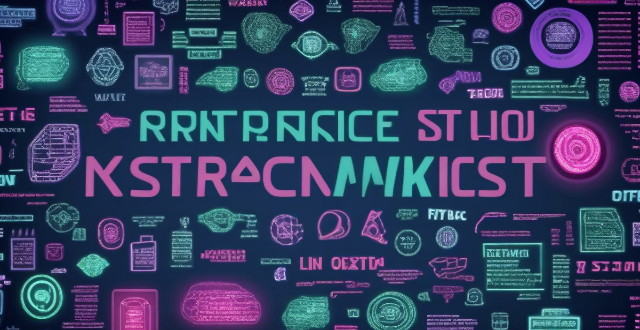
What are the benefits of having a strong digital identity ?
The importance of a strong digital identity is highlighted in this text, which outlines several benefits including enhanced privacy and security, improved reputation management, greater control over online presence, better access to opportunities, and increased influence and credibility. The author emphasizes the need for individuals and organizations to manage and protect their digital identities to position themselves for success in today's interconnected world.

How do I ensure safe transactions when buying or selling second-hand goods online ?
When engaging in online transactions for second-hand goods, it is crucial to take precautions to ensure the safety and security of both parties involved. Here are some tips on how to do so: Research the Seller/Buyer: Check reviews and ratings, verify identity, and be cautious about sharing personal information. Use Secure Payment Methods: Avoid cash transactions, protect financial information, and opt for secure payment methods such as PayPal or credit cards. Meet in Public Places: Arrange for public meetings and bring a friend along for extra security. Inspect the Item Before Purchasing: Thoroughly inspect the item, ask questions, and ensure it matches the description provided by the seller. Keep Records of the Transaction: Save conversation history and request receipts or invoices to document the transaction.

What is digital marketing ?
Digital marketing is the use of digital channels to promote products or services. Key elements include SEO, social media marketing, email marketing, content marketing, PPC advertising, affiliate marketing, online PR, data analytics, mobile marketing, and influencer marketing. Benefits of digital marketing include cost-effectiveness, targeted audience reach, measurable results, global reach, and personalization.

What is blockchain technology and how does it relate to cryptocurrency ?
Blockchain technology is a decentralized, distributedBlockchain technology is a decentralized, distributed transactions in a secure and im It is the foundational structure for cryptocurrencies, which are digital or virtual currencies that use cryptography for security and operate independently of a central bank. The key features of blockchain include decentralization, immutability, transparency, and security. Cryptocurrencies rely on blockchain technology to maintain a transparent and secure system for recording transactions without intermediaries like banks. Transactions are validated by network participants through consensus algorithms like Proof of Work (PoW) or Proof of Stake (PoS), and new coins can be issued as rewards for those who validate transactions and maintain the network. Overall, blockchain technology enables a peer-to-peer electronic cash system that is both secure and decentralized.

How does blockchain ensure decentralization and transparency ?
Blockchain technology ensures decentralization and transparency through a distributed ledger, consensus mechanisms like Proof of Work (PoW), Proof of Stake (PoS), and Delegated Proof of Stake (DPoS), node autonomy, immutable records via cryptographic hashing, public accessibility of the ledger, verifiable transactions using digital signatures, and smart contracts. These features create an environment resistant to manipulation and corruption, offering a paradigm shift in secure and accountable digital interactions.

How does digital identity impact personal privacy and security ?
The article discusses the impact of digital identity on personal privacy and security. It highlights the risks associated with data collection, cybercrime, surveillance, phishing attacks, social engineering attacks, and ransomware attacks. The article emphasizes the importance of protecting digital identity by using strong passwords, enabling two-factor authentication, and being cautious when sharing sensitive information online.

Can I use Cross-Border Payment for personal transactions ?
Cross-border payment systems are designed to facilitate international transactions, allowing individuals and businesses to send and receive money across borders. These systems can be used for various purposes, including personal transactions. In this article, we will discuss the use of cross-border payment systems for personal transactions and provide some tips on how to make the most of them. Cross-border payment refers to the process of transferring money from one country to another. This can be done through various methods, such as wire transfers, credit cards, or digital wallets. The main purpose of cross-border payment systems is to simplify the process of sending and receiving money internationally, making it easier for people to conduct business or personal transactions with others around the world. While cross-border payment systems are primarily used for business transactions, they can also be used for personal transactions. Here are some examples of when you might use a cross-border payment system for personal transactions: Sending Money to Friends and Family Abroad: If you have friends or family members living in another country, you may need to send them money occasionally. Cross-border payment systems allow you to do this quickly and easily, without having to worry about exchange rates or bank fees. Paying for Online Shopping: Many online retailers offer international shipping, allowing you to purchase goods from other countries. When paying for these purchases, you can use a cross-border payment system to ensure that your payment is processed securely and efficiently. Travel Expenses: When traveling abroad, you may need to pay for expenses such as accommodation, transportation, or food. Cross-border payment systems can be useful in these situations, as they allow you to make payments in local currencies without having to carry large amounts of cash. To make the most of cross-border payment systems for personal transactions, consider the following tips: Choose the Right Provider: Not all cross-border payment systems are created equal. Some may offer better exchange rates or lower fees than others. Research different providers before choosing one to ensure that you get the best deal possible. Understand Fees and Exchange Rates: Before making any cross-border payment, be sure to understand the fees and exchange rates involved. Some providers may charge additional fees for certain types of transactions, so it's important to know what you're getting into before sending money. Keep Track of Your Transactions: When using cross-border payment systems for personal transactions, it's important to keep track of your transactions. This will help you stay organized and ensure that you don't overspend or lose track of your finances. Be Aware of Scams: Unfortunately, there are scammers who target people using cross-border payment systems. Be cautious when sharing personal information or sending money to someone you don't know well. If something seems suspicious, trust your instincts and report it to the appropriate authorities. In conclusion, cross-border payment systems can be a convenient and efficient way to handle personal transactions with people in other countries. By choosing the right provider, understanding fees and exchange rates, keeping track of your transactions, and being aware of potential scams, you can make the most of these systems and enjoy smoother international financial interactions.

How can small businesses effectively use digital marketing ?
This text offers a comprehensive guide for small businesses to effectively utilize digital marketing. It outlines six strategies: developing a strong online presence through website, social media, and content marketing; leveraging local SEO by optimizing Google My Business listings and incorporating local keywords; investing in pay-per-click advertising with targeted ads and retargeting; harnessing email marketing by building lists and segmenting them for personalized communication; collaborating with influencers for expanding brand reach and credibility; and tracking performance using analytics tools, A/B testing, and customer feedback. The article emphasizes the importance of staying updated with digital trends and maintaining a consistent brand image across all platforms.

What are the challenges faced by businesses in digital marketing ?
The text discusses the various challenges faced by businesses in digital marketing, including staying up-to-date with technology, data privacy and security concerns, generating measurable results, content creation and management, search engine optimization (SEO), social media marketing, customer acquisition and retention, adapting to consumer behavior, budgeting and resource allocation, and lack of expertise. Addressing these challenges proactively can improve digital marketing efforts and achieve better results online.

How important is SEO in digital marketing ?
The text discusses the significance of SEO in digital marketing, highlighting its role in increasing visibility, cost-effectiveness, high conversion rates, long-term results, competitive edge, measurable outcomes, user experience improvement, and attracting local customers. It emphasizes that SEO is a crucial strategy for businesses to establish a strong online presence and compete effectively in the digital marketplace, contributing to both short-term and long-term success in digital marketing endeavors.
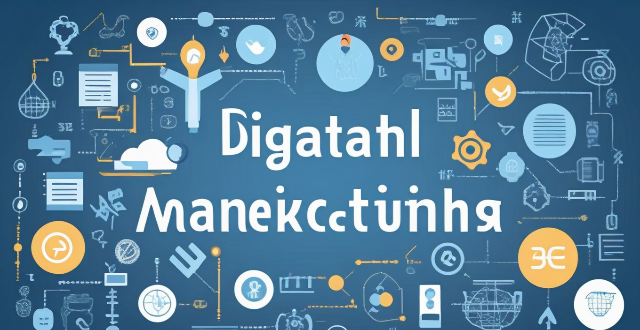
What are the benefits of using digital marketing for a business ?
The text discusses the advantages of digital marketing for businesses, which include improved targeting, cost-effectiveness, increased brand awareness, better customer engagement, and measurable results. It highlights that digital marketing allows companies to reach their ideal customers more effectively, save money compared to traditional marketing techniques, promote their brand consistently online, engage with customers on a deeper level, and track the performance of their campaigns for continuous improvement.

How has digital marketing changed the way businesses operate ?
Digital marketing has revolutionized the way businesses operate by providing increased reach, better insights, cost-effectiveness, improved engagement, and real-time results. It allows businesses to connect with a global audience through various digital channels, track customer behavior and preferences, control their marketing budgets, build stronger relationships with customers, and monitor the success of their campaigns in real-time. As technology continues to evolve, it will be interesting to see how digital marketing further impacts business operations in the future.

How has the rise of digital banking affected the need for financial literacy ?
The rise of digital banking has significantly affected the need for financial literacy. As more and more people turn to online banking platforms, it becomes essential for them to have a basic understanding of financial concepts and practices. In this article, we will explore how digital banking has influenced the importance of financial literacy and what individuals can do to improve their financial knowledge.

What is the role of blockchain in the financial industry ?
Blockchain technology has emerged as a game-changer in the financial industry, offering unprecedented levels of security, transparency, and efficiency. Its decentralized nature and immutable ledger system have paved the way for innovative applications that are reshaping the financial landscape. In this article, we will explore the various roles of blockchain in the financial industry. One of the key advantages of blockchain is its ability to create trust without the need for intermediaries. Traditional financial systems rely on central authorities, such as banks or clearinghouses, to verify and record transactions. With blockchain, transactions are verified by a network of nodes, each of which maintains a copy of the ledger. This decentralized approach eliminates the need for intermediaries, reducing costs and increasing efficiency. Blockchain provides a transparent and auditable ledger of all transactions. Each transaction is recorded on the blockchain in a tamper-resistant manner, ensuring that any attempt to alter the ledger will be immediately apparent. This level of transparency enhances accountability and reduces the risk of fraud or errors. Smart contracts are self-executing contracts with the terms of the agreement between buyer and seller being directly written into lines of code. These contracts can automatically execute transactions when certain conditions are met, eliminating the need for intermediaries and reducing the risk of non-performance or disputes. Smart contracts have the potential to revolutionize many areas of finance, including insurance, real estate, and supply chain management. Distributed ledger technology (DLT) is at the heart of blockchain's capabilities. It allows multiple parties to have access to a shared database that is secure, transparent, and tamper-proof. DLT enables faster settlement times, improved cash management, and reduced operational risks. It also facilitates cross-border payments and remittances, making them more efficient and cost-effective. Tokenization involves representing physical assets, such as stocks, bonds, or real estate, as digital tokens on a blockchain. This process enables fractional ownership, easier transferability, and increased liquidity. Tokenization also allows for programmable assets, where rules can be embedded into the tokens themselves, enabling automated compliance with regulations and contractual obligations. Blockchain can be used to create a secure and decentralized identity verification system. This system would allow individuals to control their own identity information and share it selectively with third parties while maintaining privacy. Such a system could significantly reduce identity fraud and streamline processes that require identity verification, such as opening bank accounts or applying for loans. Blockchain's transparency and immutability make it an ideal tool for regulatory compliance. By using blockchain to record all financial activities, regulators can easily monitor and analyze transactions in real-time, identifying potential violations and enforcing compliance more effectively. This could lead to more efficient regulation and better protection for consumers and investors. In conclusion, blockchain technology has the potential to transform the financial industry by improving efficiency, reducing costs, enhancing security, and promoting transparency. From decentralization and trust to smart contracts and tokenization, blockchain is poised to disrupt traditional financial models and create new opportunities for innovation and growth. As adoption continues to accelerate, we can expect to see even more exciting developments in the years ahead.

Can you recommend any online learning resources for digital marketing ?
The recommended online learning resources for digital marketing include Coursera, Udemy, HubSpot Academy, LinkedIn Learning, and Skillshare. These platforms offer courses on various aspects of digital marketing, such as search engine optimization (SEO), social media marketing, branding, customer engagement, data-driven marketing, content creation, paid advertising strategies, building a strong online presence, creating compelling visuals and copywriting for social media ads, inbound marketing methodologies, creating valuable content, developing a successful content strategy, core principles of digital marketing, advanced social media tactics, growth hacking techniques, email marketing fundamentals, and more. These resources provide learners with practical tools, frameworks, and real-world examples to apply in their work.

Which digital resources are most helpful for remote learning ?
Remote learning has become increasingly popular due to the COVID-19 pandemic. With the help of digital resources, students can continue their education from home. Here are some of the most helpful digital resources for remote learning: Online Learning Platforms, Video Conferencing Tools, Virtual Whiteboards, Online Libraries, Interactive Learning Tools, and Communication Tools. These resources provide students with access to high-quality educational content, interactive features, and collaborative tools that enhance the learning experience. By utilizing these resources, students can continue their education from home while staying engaged and motivated.
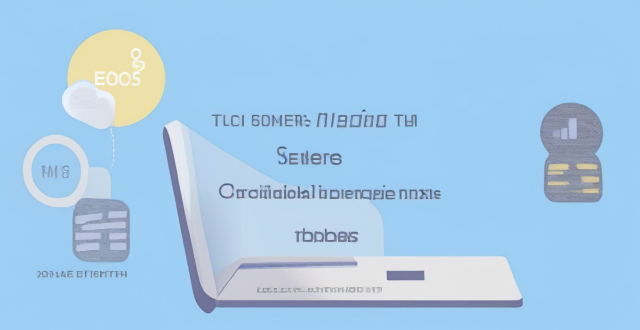
How do I create a secure digital identity for myself ?
Creating a secure digital identity is crucial in today's digital age. Here are some steps you can follow to create a secure digital identity: choose a strong password, enable two-factor authentication, keep your software up-to-date, be cautious with personal information online, use encryption tools, and monitor your online presence. By following these steps, you can protect your personal information and reduce the risk of identity theft or cyber attacks.

How do you create engaging and effective digital ads ?
Creating engaging and effective digital ads is crucial for businesses to stand out in the crowded online space. Here are some tips on how to create compelling digital ads: 1. Know Your Audience: Research your target audience's preferences, behaviors, and pain points to create buyer personas that represent your ideal customers. 2. Clear and Concise Messaging: Clearly communicate the unique value proposition of your product or service, highlight the benefits, and include a clear and compelling call to action (CTA). 3. Visual Appeal: Use high-quality images that resonate with your target audience, maintain consistent branding, and consider incorporating video content for better engagement. 4. A/B Testing: Create multiple versions of your ad with different elements, track key performance indicators (KPIs), and optimize your ad based on the best-performing variations. 5. Social Proof: Include customer testimonials or reviews, share case studies, and collaborate with influencers to build trust and credibility. 6. Mobile Optimization: Ensure that your ad is optimized for mobile devices, minimize load time, and make sure CTAs are easily clickable on smaller screens. By following these strategies, you can create digital ads that not only capture attention but also drive conversions and achieve your marketing goals.

What is a smart contract ?
Smart contracts are self-executing contracts with the terms of the agreement between buyer and seller being directly written into lines of code, which exist across a distributed, decentralized blockchain network. They allow for transactions and the transfer or distribution of cryptocurrencies to be executed automatically without the need for a central authority, legal system, or external enforcement mechanism. Smart contracts are autonomous, immutable, traceable, and decentralized. They have various use cases such as cryptocurrency transactions, insurance claims, supply chain management, real estate transactions, gambling and betting, and legal documents. The benefits of smart contracts include efficiency, transparency, security, speed, and accuracy. However, there are challenges and considerations such as code quality, lack of legal recognition, interoperability issues, and privacy concerns.

What are the benefits of using a digital tool for note-taking ?
The article discusses the advantages of using digital tools for note-taking, which include increased efficiency, improved learning and retention, environmental benefits, and collaboration opportunities. Digital notes can be taken quickly, organized easily, searched efficiently, and accessed from anywhere. They also offer visual aids, audio recordings, linking capabilities, and review options that enhance learning and retention. Additionally, digital note-taking reduces paper waste, energy consumption, and physical storage needs, contributing to a more sustainable environment. Finally, digital tools facilitate collaboration by allowing note sharing, real-time editing, version control, and feedback mechanisms. Overall, digital note-taking is an optimal choice for students, professionals, and anyone looking to optimize their note-taking experience.

How do I ensure that my digital assets are handled after my death ?
Managing digital assets after death requires careful planning and regular updates to keep pace with technological changes. This guide outlines steps to take to ensure your online presence is handled according to your wishes, including inventorying assets, choosing a digital executor, including assets in your will, using digital legacy services, setting up access and instructions, and reviewing and updating plans regularly. By following these steps, you can protect your online legacy and provide clarity for your loved ones.

How can businesses benefit from implementing digital identity solutions ?
Digital identity solutions offer businesses enhanced security, improved customer experiences, increased efficiency, and scalability. They reduce fraud risks, protect data, streamline onboarding, personalize services, automate processes, and provide reliable data for better decision-making. These benefits help businesses stay compliant with regulations, save costs, and adapt to evolving technology.

How do you use data analytics to improve your digital marketing efforts ?
In the digital age, data analytics has become an indispensable tool for improving marketing strategies. By analyzing consumer behavior and preferences, businesses can tailor their marketing efforts to better suit their target audience, ultimately leading to increased engagement and conversion rates. To improve your digital marketing efforts using data analytics, follow these steps: 1. Identify Key Performance Indicators (KPIs) based on your marketing objectives such as increasing website traffic or boosting sales. 2. Collect and analyze data using tools like Google Analytics and social media analytics platforms to identify trends and areas for improvement. 3. Optimize your marketing strategy by adjusting content, creating targeted campaigns, and refining ad spend based on performance. 4. Continuously test and refine your approach through A/B testing and iterating based on results to optimize performance. By integrating data analytics into your digital marketing efforts, you gain valuable insights that allow you to make informed decisions and optimizations. This systematic approach not only enhances the effectiveness of your marketing campaigns but also helps you stay ahead in a competitive market. Remember, the key is to continuously monitor, analyze, and adapt based on the data you collect.
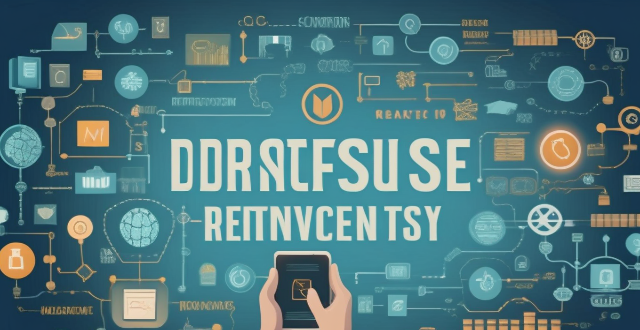
What are some common threats to digital identity and how can I prevent them ?
The text discusses the threats to digital identity and how to prevent them. It outlines common threats such as phishing attacks, malware and viruses, identity theft, data breaches, and ransomware. To prevent these threats, it suggests using strong passwords, enabling two-factor authentication, keeping software up-to-date, being cautious with emails and links, monitoring online accounts, using antivirus software, securing your network, and educating yourself about cybersecurity. By taking these precautions, individuals can reduce the risk of falling victim to threats to their digital identity.

What is content marketing and how does it fit into a digital marketing strategy ?
Content marketing is a strategic approach to marketing that focuses on creating and distributing valuable, relevant, and consistent content to attract and engage a clearly defined audience. It involves the creation of various forms of content such as blogs, videos, social media posts, e-books, infographics, etc., which are designed to be helpful, informative, or entertaining for the target audience. The ultimate goal of content marketing is to convert prospects into customers by establishing a brand as a trustworthy authority in its field. Key elements of content marketing include quality content, targeted audience, strategic distribution, consistency, and call to action. Content marketing plays a central role in digital marketing strategy as it is often the foundation upon which other digital marketing activities are built. It integrates with different elements of digital marketing such as SEO, social media marketing, email marketing, pay-per-click advertising, conversion rate optimization, analytics and reporting, public relations and brand image, customer retention and loyalty, and multichannel experience.

Can blockchain technology revolutionize the financial industry ?
Blockchain technology has the potential to revolutionize the financial industry by introducing a decentralized, transparent, and secure way of conducting transactions. In this article, we will explore how blockchain technology can transform the financial sector and discuss its benefits and challenges. Benefits of Blockchain in Finance: - Decentralization: Elimination of intermediaries and increased efficiency. - Transparency: Immutable records and audit trail for regulatory compliance. - Security: Distributed ledger and cryptography ensure secure transactions. Challenges of Blockchain in Finance: - Regulatory uncertainty: Lack of clear regulations and compliance issues. - Scalability: Limited throughput and ongoing research for scaling solutions. - Interoperability: Integration with legacy systems and lack of standardization. Potential Use Cases for Blockchain in Finance: - Payments and Remittances: Faster and cheaper cross-border transactions. - Trade Finance: Streamlined processes and automated smart contracts. - Securities Settlement: Real-time settlement and fractional ownership of assets. In conclusion, blockchain technology has the potential to revolutionize the financial industry by introducing a decentralized, transparent, and secure way of conducting transactions. While there are challenges to overcome, such as regulatory uncertainty, scalability concerns, and interoperability issues, the benefits of blockchain in finance are undeniable. As the technology continues to evolve and mature, we can expect to see increased adoption and innovation in the financial sector powered by blockchain technology.
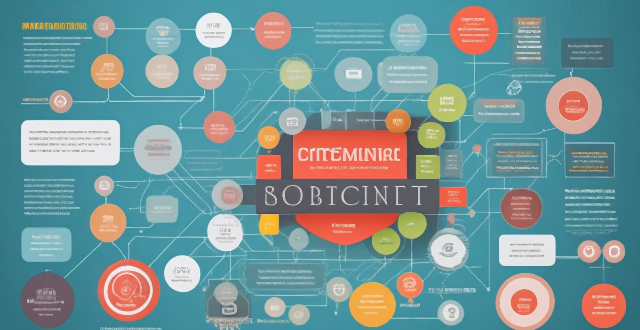
How can smart contracts be used to streamline financial transactions ?
Smart contracts can streamline financial transactions by automating processes, reducing costs, and increasing efficiency. They can automate payments and transfers, act as escrow services, create loan agreements, streamline insurance claims, and facilitate trading and exchanges of financial assets. As blockchain technology evolves, we can expect more innovative uses for smart contracts in the financial industry.